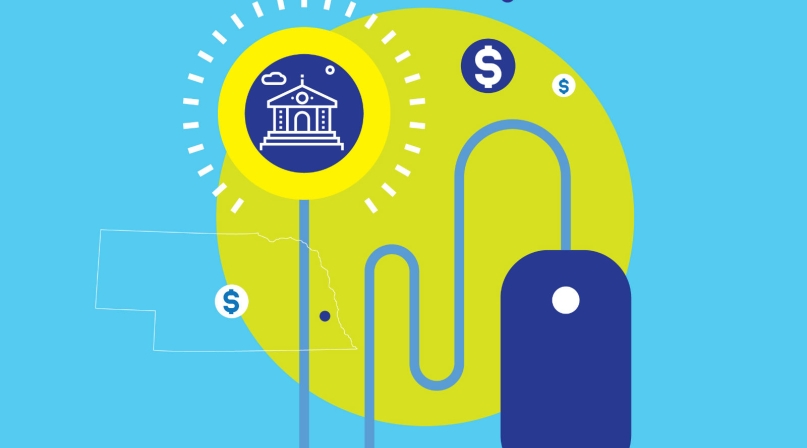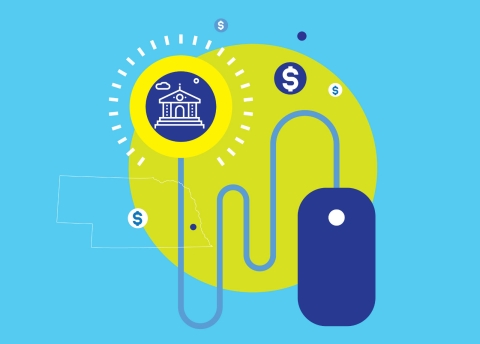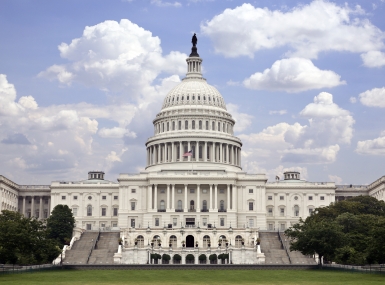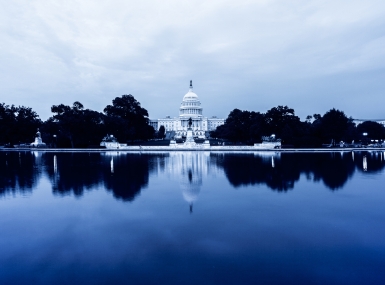Leading the charge toward digital payments
Upcoming Events
Related News

Key Takeaways
In 2019, the Lancaster County, Neb. Treasurer’s Office will lead a Future of Digital Payments Pilot Project in consultation with the Visa Government Solutions and Innovations Department. The purpose of the project is to identify ways the county can save time and money when collecting revenue, such as fees and taxes. The NACo Counties Futures Lab (CFL) will work closely with both organizations to measure the impact of transitioning from cash and check payments to more often using digital payment options.
“Lancaster County recognizes the potential cost savings and efficiencies by increasing our digital acceptance,” said Candace Meredith, chief deputy treasurer, Lancaster County. “Being involved in this project, we will be able to measure the financial impact to our county offices as well as explore new digital options and processes that we can share with counties across America.”
Members of the National Association of County Collectors, Treasurers and Finance Officers (NACCTFO) have identified the practice of increasing the usage of digital payments rather than cash and checks as a promising trend that has the potential to benefit county governments.
During the 2018 NACo Annual Conference, NACCTFO members, including Laura Montoya, county treasurer in Sandoval County, N.M., spoke at a Future of Digital Payments workshop about her experience offering credit card payment options to residents in her county. The amount of revenue collected increased, the number of delinquent accounts shrunk and the need to hire additional staff during peak collection season was eliminated once the new digital payment options were in place.
County governments are increasingly examining ways to better coordinate and modernize revenue collection practices that lead to cost savings and increased efficiency.
NACo’s Counties Futures Lab conducted a survey and convened a focus group of NACCTFO members earlier in 2018, who outlined parameters for the project and provided baseline guidance for selecting a county to lead the effort.
Lancaster County was selected as the pilot county in August 2018. Representatives from Visa and CFL conducted a site visit in October 2018 to better understand opportunities for increasing usage of digital payments. Agency staff shared current practices and areas where their departments might benefit from innovative new solutions.
For example, the county recently began implementation of a “p-card” (purchasing card) system that replaced the previous system for buying materials and supplies using purchase orders. Additional enhancements might include the use of more interdepartmental electronic fund transfers, kiosks for residents to use credit and debit cards to make payments and more convenient internet portals that can be used to process payments remotely.
Implementation of digital payment solutions is scheduled to begin in early 2019. Studies conducted in other local jurisdictions indicate that these services will benefit the county. Visa conducted an international study of the impact of increasing the usage of digital payments in cities, Cashless Cities: Realizing the Benefits of Digital Payments. Study participants reported digital payments were more convenient for residents, and reduced costs, labor and time.
“Visa is excited to be partnering with the National Association of Counties and Lancaster County, Nebraska during this project,” said Bobby Thomson, senior vice president and head of U.S. Government Relations, Visa, Inc. “Over the course of the next year, we will be able to target inefficient and costly processes on the county related to acceptance, purchasing and disbursement through cash and check. We have a real opportunity here to measure exactly what those costs are and the opportunities that can be realized through digital, ultimately sharing with counties across the country.”
Through quantitative and qualitative analysis, CFL will measure the impact of the project on Lancaster County’s revenue collection and management practices. The team will conduct surveys of employees and residents who use the new systems.
They will also work closely with the treasurer’s department and with other agency officials to obtain baseline data that can be used to measure changes in the amount of time, labor and expense before and after project implementation.
At the conclusion of the project, CFL will, along with colleagues from Lancaster County and Visa, evaluate the potential benefits of creating similar initiatives in counties across the country.

Attachments
Related News

County Countdown – Dec. 15, 2025
Every other week, NACo's County Countdown reviews top federal policy advocacy items with an eye towards counties and the intergovernmental partnership.

U.S. Congress passes reconciliation bill: What it means for counties
On July 3, the U.S. Congress passed sweeping budget reconciliation legislation.

U.S. Senate passes amended reconciliation bill text: What it means for counties
On July 1, the U.S. Senate narrowly passed their version of sweeping budget reconciliation legislation.